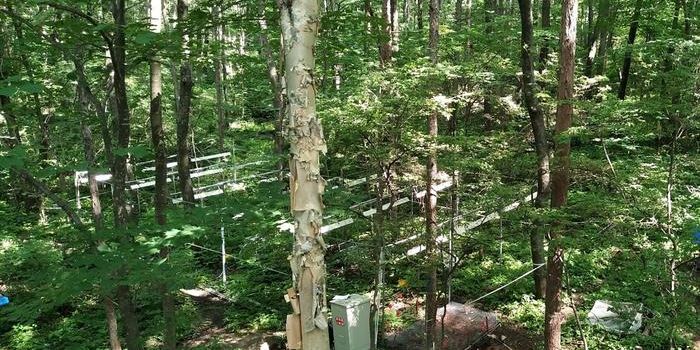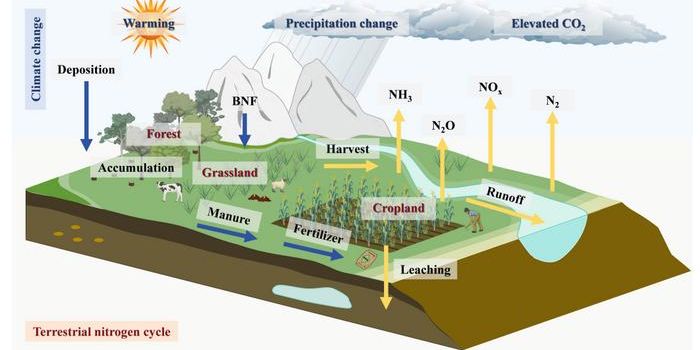National Aviation Day: An Exclusive Interview with Project Engineer Shea Zuckerman | Textron Aviation

Zuckerman is an aviation professional and project manager with a lifelong passion for self-development and teaching and believes our highest purpose in life is to use our skills to be of service to others while improving our community.
To commemorate this year’s National Aviation Day, Labroots Science Writer, Laurence Tognetti, spoke with Zuckerman about what drew him to aviation, how he came to be an engineer at Textron Aviation, and what it’s like working in the aviation industry.
Laurence Tognetti: Tell us a bit about your background, your experiences training to be an engineer, and where you are right now in your career.
Shea Zuckerman: I received my undergraduate degree from Embry-Riddle Aeronautical University doing a Bachelor of Science in Aeronautical Engineering with minors in Math and Aviation Safety. As a side note for anyone with a technical mind, also have a creative outlet or you’ll miss some of the richest stuff of life. To that end, I was in a couple choirs and taking classical voice lessons at the same time I was working on my engineering degree. Since then, I’ve gone on to receive an MBA in Innovation and Entrepreneurship and am a licensed Project Manager. I’d say I’m mid-career, though my aspirations are to become financially independent in 5 years. That will allow me the freedom to do the best kind of work there is: The kind you don’t need to get paid for!
Laurence Tognetti: Were there any inspirational figures in your life or moments where you realized this is what you wanted to do?
Shea Zuckerman: I was always interested in how things work as a kid. Ask my parents about the time I took apart the answering machine to see all the parts inside! I knew early on I wanted a career that gave me the chance to look at the inner workings of machines and how they operate, so becoming an engineer was a natural fit. My love of airplanes was thanks to my Uncle Jim who used to fly remote controlled planes and took me out to watch when we visited him in Tampa Bay, FL. I think I was maybe 12 at the time. I asked way too many questions, but he was gracious enough to humor my curiosity. That curiosity burned and grew through high school where I worked at the airport in my home city of Salt Lake City, UT to meet flight instructors and turned all my money into flying lessons to get my Private Pilot’s License at 17 years old. Yes, they let teenagers get a license to fly airplanes at 17. That fact still amazes me, but it’s a rigorous and rewarding process for anyone of any age.
Laurence Tognetti: Have you always had a passion for aviation or is that something that came in time?
Shea Zuckerman: I’ll admit that I was into trains as a little kid. Those are cool too, but that was quickly replaced by a love for flying machines. I mean, when you think about how far our flying ability has come in just over 100 years since we discovered powered flight, there’s no other conclusion I can make than airplanes are the pinnacle of human invention. They require so many disciplines from artists designing the most elegant shapes, to structural engineers who determine how to make them a reality safely. It’s weird because every time I’m at an airport, one of my favorite places of course, I still want the window seat in the terminal. Even though I know more now than I ever have about how thousands of pounds can gracefully be thrust into the sky while people sip drinks inside, it never ceases to amaze me that we can make that happen.
Laurence Tognetti: How did you land working at WSU Tech in Kansas?
Shea Zuckerman: My very recent previous role was as the Director of the Career and Tech Ed STEM Lab at the largest technical college in Kansas, WSU Tech. I was hired right after my MBA to build a Mobile Career Demonstration Lab that we could take around the state to Middle and High School Students to give them a primer on some of the high-demand technical careers that they can train for. I got that job, ironically enough, by chatting with the person next to me on, you guessed it, a flight back to Wichita years ago. We kept in touch, and she recommended me to the president of the college for the job. Never underestimate the power of having the right skills and the right connections. That’s the stuff of the very best opportunities in life.
Laurence Tognetti: Can we ask what current and/or future projects you’re working on?
Shea Zuckerman: You sure can! I spent about 5 years in my last role building the FutureMaker Mobile Learning Lab for WSU Tech, and about a year and a half ago I started a new job with Textron Aviation, the parent company for Cessna and Beechcraft airplanes. In this role I work for our Special Missions Group as a Project Engineer. We take the production aircraft our company offers and figure out how to add extra goodies and features that specific customers ask for. My current project is taking a King Air 260 and adding new training-focused equipment that will replace the US Navy’s current fleet of multi-engine training airplanes. This new variant will be known as the T-54A. It’s very fast-paced work that requires a wide range of skills, but not a large depth of knowledge in any single area. It suits my skillset well because I know a little bit about a lot of things! I also know how to ask good questions to help my teams drive to the best solutions. This is a key hallmark skill to hone as a project manager. Future projects are honestly unknown at this point, though I expect to be working on Research and Development projects that look at how we can increase the capabilities of our airplanes to provide more options to customers looking for specific solutions that airplanes can provide.
Laurence Tognetti: How excited are you for the future of aviation and where do you see it going in the next few years and/or decades?
Shea Zuckerman: Seeing the advancements in electric and hydrogen propulsion is a frontier in aviation that I can’t wait to see unfold! Right now, a typical hour of flight training costs an aspiring pilot anywhere from $130-220 for a basic airplane. A lot of that cost is fuel, and electric aviation is posed to drive the cost of flight training down to a level where it becomes more accessible to more people. To me this means it will open the industry to the next great minds who wouldn’t have had a shot before the cost was reasonable. I’m also keeping my eyes on hydrogen as a fuel for airliners. We simply have to do better at managing Climate Change, while simultaneously recognizing our core human need to explore. Aviation can play a big role in balancing the two demands with more research into alternative fuel.
Laurence Tognetti: Describe a typical day for you at Textron Aviation
Shea Zuckerman: As a Project Engineer, my job is to coordinate the many different groups required to certify an airplane. This requires a lot of meetings with individuals from across the organization including design, stress, aerodynamics, acoustics, electrical, and powerplant engineers, as well as flight test pilots and company management. My current project is large enough that I work with a small team of other Project Engineers to see it through. Essentially, all of our engineers are like extremely talented parts of a complex orchestra, and I am the conductor. We create beautiful music in the form of new products when we all play at the same tempo, but if the guy with the tuba hits a sour note, it could throw our project off-track! Between meetings there is some coordination with vendors and our Supply Chain, and fielding requests from the Production side of our business. I also help our designers with new designs and ensure what is made will meet the customer’s needs. It’s a very mentally challenging job because most people look to the Project Engineer for the answers to everything that’s going on with the project, so as much as I know humans are very terrible at multitasking, it’s something I have to do every day. I have to be able to switch mental gears quickly as one hour I may be working on one piece of the project, then the next it’s a totally different piece.
Image of the Beechcraft King Air 260 Multi-Engine Training System (METS) T-54A being developed by Textron Aviation for the U.S. Navy (Credit: Textron Aviation)
Image of the interior of the Beechcraft King Air 260 Multi-Engine Training System (METS) T-54A being developed by Textron Aviation for the U.S. Navy (Credit: Textron Aviation)
Laurence Tognetti: What advice would you give to students who wish to work in aviation?
Shea Zuckerman: It’s fiscally expensive to become a pilot, it’s mentally expensive to become an engineer, but both are extremely rewarding and will pay off with many benefits throughout your career. Pilots get paid to see the world and have the best seat in the house at 30,000 feet! Engineers get to design the world we live in, and in doing so, define what our future as a species will look like. I honestly think this is the best time to get into the aviation game. It hasn’t been this good at any point since I was born. Between the new innovations we are seeing being designed into the market, and the retirements from the airlines, there are more opportunities to get into the business at a more cost-effective rate than before. Some airlines are even paying for students to get their training done with the promise of an airline job at the end. I’ve never seen that done in North America, but that’s what happens when the need for people in the sciences far outweighs the number of students taking the plunge.
Laurence Tognetti: Is there anything else you feel our readers need to know about your amazing career?
Shea Zuckerman: Without being a total pitchman, I would like to shout out to my company, Textron Aviation, for how they treat their employees. It’s rare to find large publicly traded companies that take such a human-centered approach to how they interact with their people. They also do a great job of taking care of the community, and even support WSU Tech and their mission to provide opportunities for students to live a better life by upskilling. For those of you looking to get into aerospace engineering, find a company that supports continued learning, and make sure to keep learning throughout your career.
You can connect with Shea Zuckerman on LinkedIn and read more about his work at Textron Aviation here.










